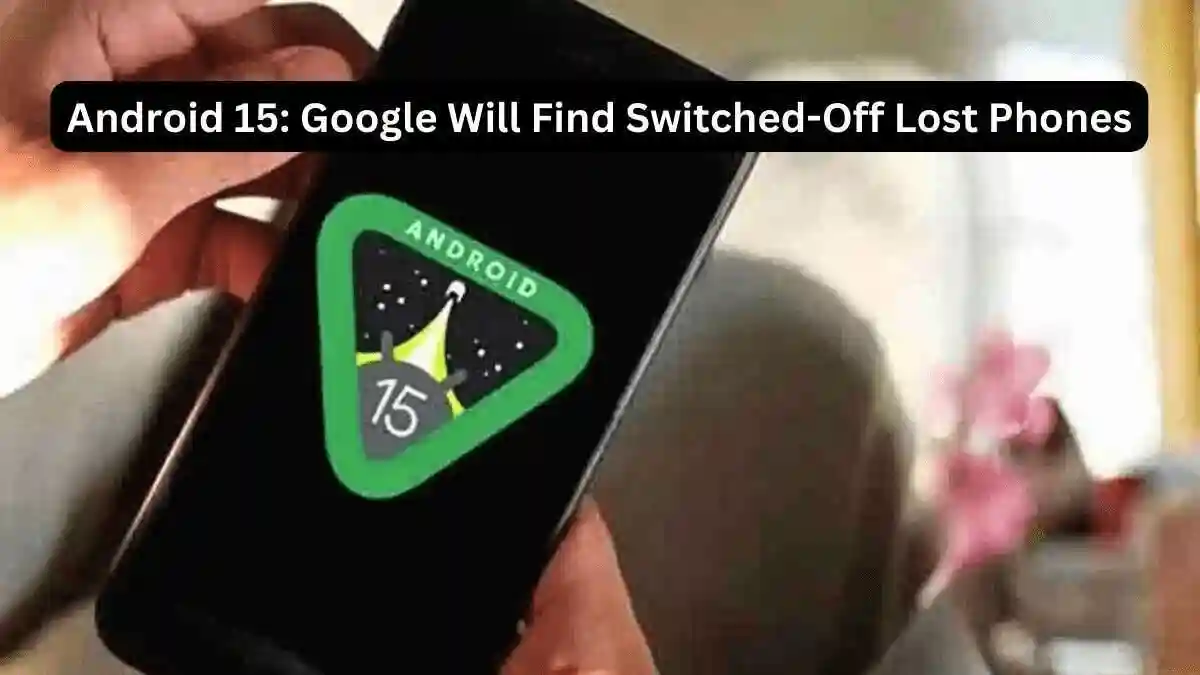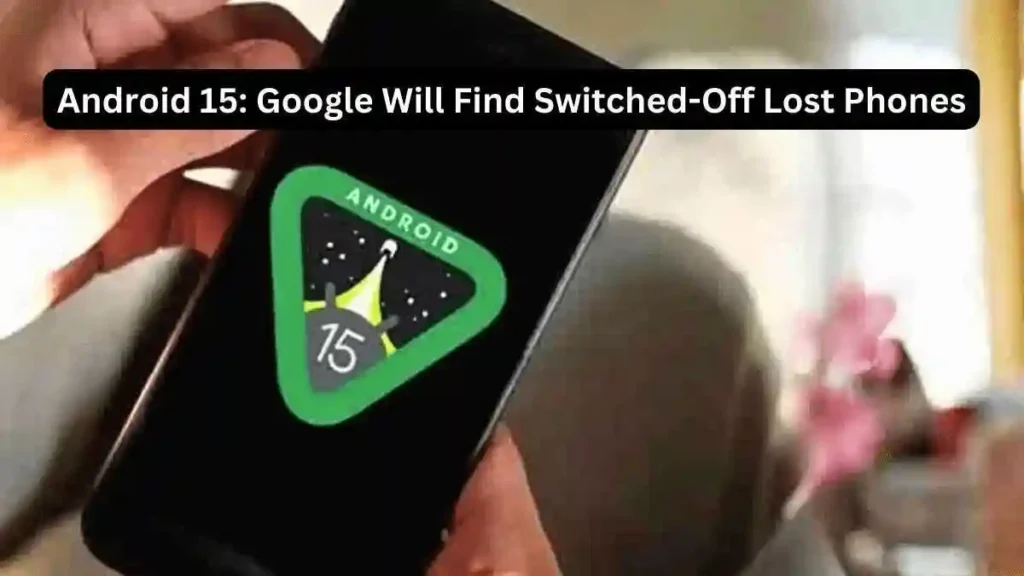For Regular Latest Updates Please Follow Us On Our WhatsApp Channel Click Here
Last updated on October 7th, 2024 at 02:25 am
Losing your phone can be a stressful experience. Important data, contacts, and memories are all at risk, not to mention the inconvenience of being disconnected. While current “Find My Device” services rely on an internet connection, a revolutionary new feature in Android 15 promises to change the game: Google will be able to locate even switched-off phones!
For Regular Latest Updates Please Follow Us On Our WhatsApp Channel Click Here
This article delves into the details of this upcoming feature, exploring its functionality, potential benefits, and how it compares to similar offerings from Apple. We’ll also discuss the implications for device security and privacy.
Finding the Lost: How Android 15 Locates Switched-Off Phones
Traditionally, “Find My Device” services rely on the phone being connected to the internet. This allows them to pinpoint the device’s location using GPS or cell tower triangulation. However, a switched-off phone presents a challenge.
Here’s where Android 15 steps in: Google is rumored to be implementing a system called “Bluetooth beacon signaling.” Think of your phone as a lighthouse constantly sending out a low-powered Bluetooth signal, even when in switched-off mode. Nearby Android devices and wearables (such as the Google Pixel Fold) can detect this signal and anonymously relay the location data back to Google’s secure servers. This creates a vast network that can help track lost devices, even if they’re offline.

Benefits of Finding Switched-Off Phones
The ability to locate switched-off phones offers a multitude of benefits:
Increased Recovery Rates: Lost phones often get switched off accidentally, especially when the battery is low. With Android 15, there’s a higher chance of recovering these devices.
Enhanced Security: Misplacing a phone with sensitive information can be a nightmare. Locating a switched-off phone allows for swift action, like remotely wiping data or changing passwords.
Peace of Mind: Knowing your phone can be found, even when switched off, provides immense peace of mind. No more sleepless nights worrying about lost data or a stolen device.
Android 15 vs. Apple’s Find My: A Look at the Competition
Apple’s “Find My” network, integrated with iOS and iPadOS, offers a similar functionality. However, there are some key differences:
Network Reliance: Apple’s “Find My” currently relies on Apple devices being nearby to relay location data for offline devices. Android 15’s Bluetooth beacon signaling seems to be a more open system, potentially leveraging any nearby Android device or Wear OS smartwatch.
Hardware Integration: Rumors suggest that Android 15’s offline tracking might require some level of hardware integration. This could potentially limit the feature to newer devices, unlike Apple’s “Find My” which works on most iPhones and iPads.
Security and Privacy Considerations
A system that tracks phones even when switched off raises valid concerns about security and privacy. Here’s what we know so far:
Anonymity: The Bluetooth signals are expected to be anonymous, meaning they won’t reveal any personal data about the phone or the user.
Opt-In: There’s a possibility that this feature might be opt-in, allowing users to choose whether their devices participate in the network.
Google’s Track Record: While Google has faced criticism for data collection practices in the past, the company has also implemented stricter privacy controls in recent years. We’ll have to wait for official details to understand how Google plans to address privacy concerns with this new feature.
The Road Ahead: What to Expect from Android 15
The reveal of Android 15 is expected at Google I/O 2024, with the official release likely later in the year. Here’s what you need to to keep an eye on:
Official Confirmation: Whether Google officially confirms the ability to locate switched-off phones and elaborates on the functionality.
Hardware Requirements: Any clarification on whether specific hardware is needed for this feature
Privacy Measures: Details on how Google plans to ensure user privacy with the Bluetooth beacon signaling system.
Simple FAQ Answers for Finding Lost Phones:
Q: What to do if my phone is lost and switched off?
A. Don’t panic! Here’s what you can do:
Check the basics: Retrace your steps and common places you might have left your phone. Call your number from another phone to see if it rings (someone might have found it).
Use “Find My Device” (if applicable): If you have an Android phone and “Find My Device” was enabled before it went missing, you might be able to see its last known location, even if switched off (more on this below).
Report lost or stolen: Contact your carrier to report your phone lost or stolen. This helps deactivate the SIM card and prevents misuse.
Consider offline tracking features (Android 15): Upcoming rumors suggest Android 15 might have a feature to locate switched-off phones. Stay tuned for official updates from Google I/O 2024!
Q: Can you find a phone that is turned off?
A. Currently, finding a switched-off phone is difficult. The Traditional “Find My Device” services rely mainly on an internet connection. However, there are rumors about a new feature in Android 15 that might change this.
Q: What to do if you lost your dead phone (out of battery)?
A. Treat it like a lost phone! Retrace your steps, and if you have “Find My Device” enabled (Android) you might see its last known location. Report it lost to your carrier to deactivate the SIM card.
Q: Can someone see my location if my phone is off?
A. Generally, no. Location services on most phones require an internet connection, which is unavailable when switched off. There might be rare exceptions depending on the phone’s specific features (not recommended).
Remember: These are general tips. For specific functionalities, consult your phone’s user manual or manufacturer’s website.
Conclusion: A Game Changer for Finding Lost Phones
The ability to locate switched-off phones in Android 15 presents a significant advancement in lost device recovery. While questions about privacy and hardware compatibility remain, the potential benefits are undeniable. This feature could revolutionize how we handle misplaced phones, offering peace of mind and a higher chance of recovering lost devices.
Whether you’re a die-hard Android user or waiting for Apple’s response, one thing’s for certain: the future of finding lost phones is looking brighter.
Also Read:
Google’s Rolling Out Its New Find My Device Network for Offline Detection
For Regular Latest Updates Please Follow Us On Our WhatsApp Channel Click Here
